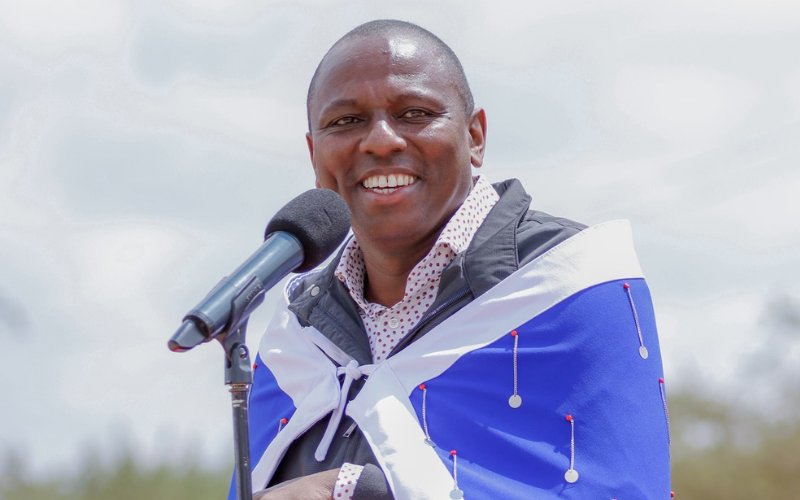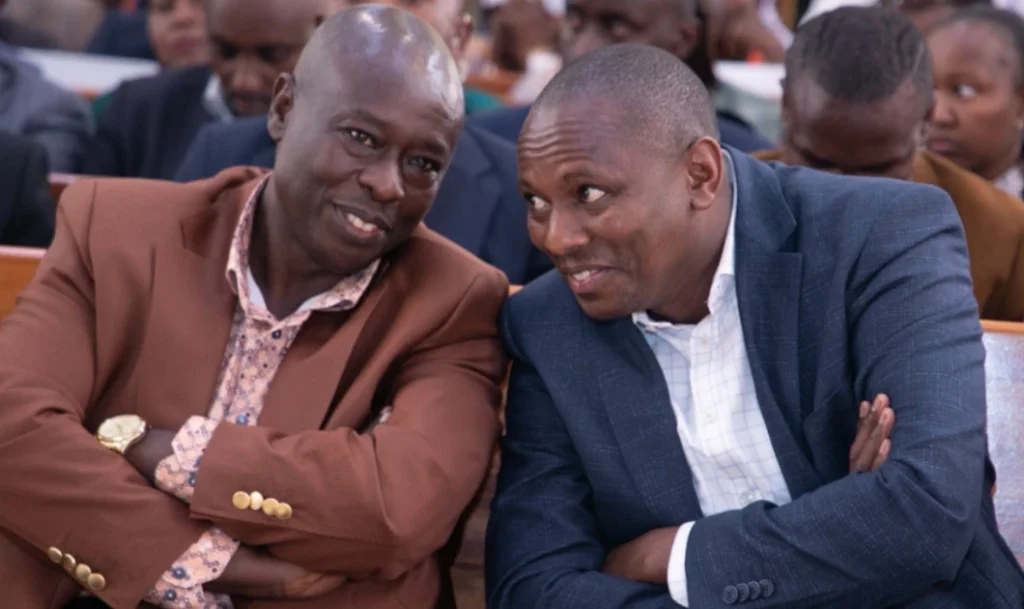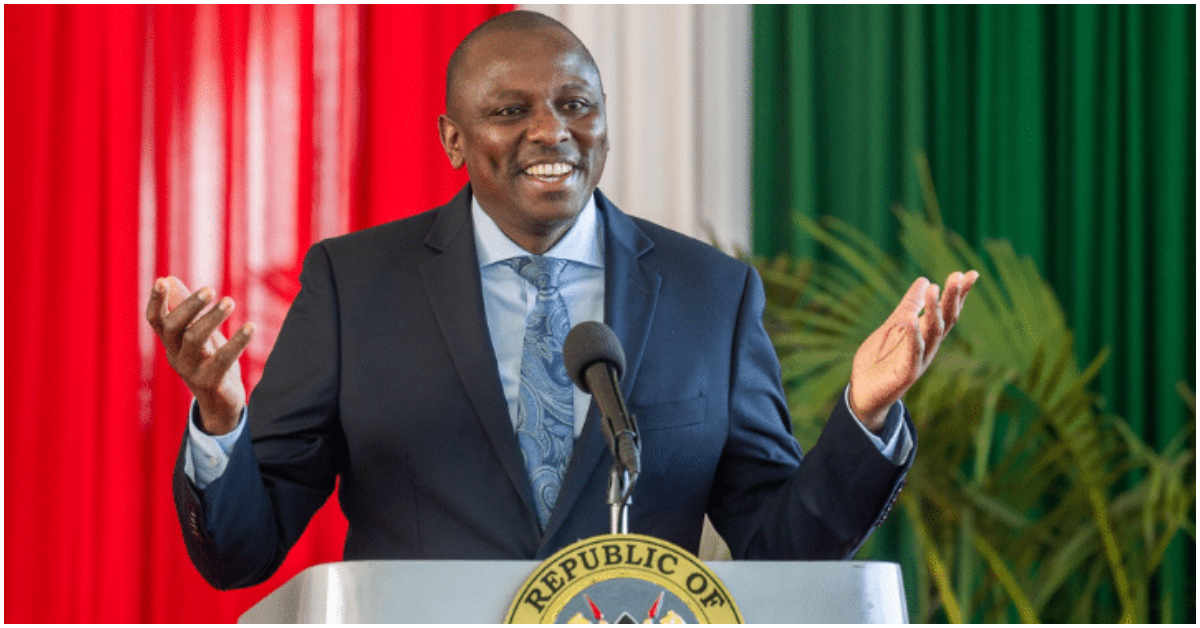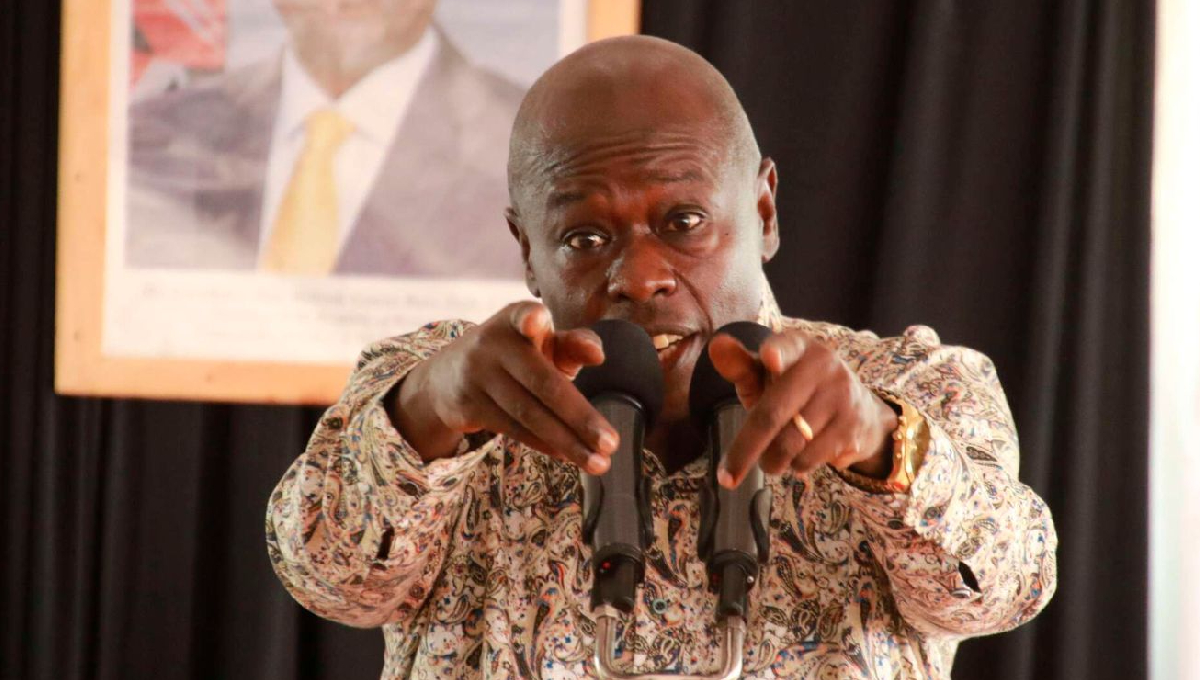Kikuyu MP and National Assembly Majority Leader Kimani Ichung’wah is at the center of a storm after making remarks widely condemned as demeaning and misogynistic, aimed at Pastor Dorcas Rigathi – the wife of ousted Deputy President Rigathi Gachagua.
In a video clip that has ignited fierce backlash online, Ichung’wah is heard ridiculing Gachagua’s popular “Wantam” slogan, reducing it to a domestic catchphrase and questioning the former DP’s commitment to both leadership and his marriage.
The remarks, made during a public empowerment event in Kajiado Central attended by high-ranking national and county officials, have triggered outrage among clergy, citizens, and civil society.
Critics say Ichung’wah not only demeaned a respected woman of the cloth, but also weaponized personal relationships for political gain—crossing a moral and ethical line.
Online, the condemnation has been swift and unforgiving.
“Waaaah, may the Church and women clergy please detest this utterance? This is immoral,” wrote @peacepatriot254.
“What are NCIC and EACC doing about this issue? This is very wrong. Such characters are unfit to hold public office,” questioned @itsCephasMakini.
“When you have nothing intelligent to say, say nothing. To stoop to this level is embarrassing,” added @Mkenyadammu.
“The bishops are parked in their holy seats, grinning like they just heard a heavenly dad joke—clearly finding the whole thing hilariously divine!” @mwitihh wrote, criticizing the silence of religious leaders present.
The verbal attack marks the latest escalation in a deepening political feud between Ichung’wah and Gachagua, a rift that intensified after Gachagua’s controversial impeachment in October 2024 over alleged constitutional violations and political misconduct—claims he fiercely denied, branding the process a politically motivated witch-hunt.
Their rivalry deepened in June 2025 after Ichung’wah alleged that Gachagua had plotted harm against his elderly parents—a deeply personal accusation that signaled the gravity of their political war.
The episode underscores the growing volatility within Kenya’s political establishment, as rival factions sharpen their positions ahead of the pivotal 2027 General Election.
Yet as tempers flare and rivalries deepen, attention has turned to the National Cohesion and Integration Commission (NCIC), which has come under fire for its apparent silence in the face of increasingly inflammatory rhetoric from senior politicians.

Appearing before the National Assembly Committee on Administration and Internal Security, Commissioner Danvas Makori admitted the NCIC lacked the resources to respond effectively to rising tensions.
He revealed the agency is developing an open-source software tool to monitor online hate speech, but warned that without increased funding, their efforts may be futile.
“There’s a perception that NCIC is ineffective and should be scrapped,” Makori told lawmakers. “But we’ve done much with little. What we need is adequate support to de-escalate these growing divisions before they explode.”
The commission had requested Sh750.5 million for the 2025/26 financial year, but received Sh568 million—the same amount as last year—leaving a shortfall of Sh182.5 million.
With political tempers flaring and public trust eroding, many Kenyans are left asking: who will hold leaders accountable when words turn into weapons?




